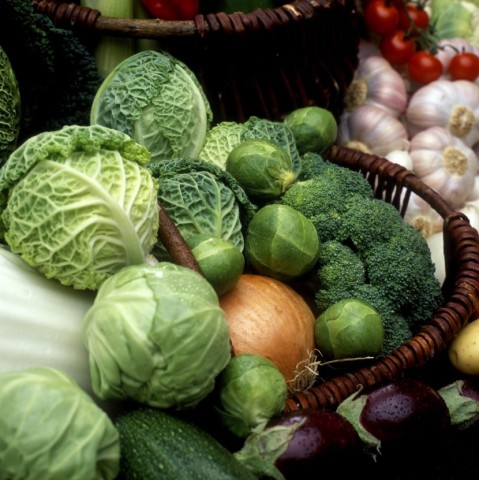DrCarney.com Blog
Isothiocyanates Reduce Breast Cancer Risk?
Breast cancer is the most frequently diagnosed cancer in American women after skin cancer. The American Cancer Society estimated that over 300,000 Americans will develop breast cancer in 2018. Unfortunately, the number of breast cancer cases in the United States is expected to rise by 50% by 2030, according to the National Cancer Institute. However, the findings of a recent study have brought a ray of hope as researchers at the University of California have uncovered a compound that can help prevent the development of breast cancer.
This study published in PLOS One Journal found out that isothiocyanates not only inhibit the proliferation of breast cancer cells but also kill these cells. Another study revealed that the isothiocyanate naringenin can halt the development and spread of tamoxifen-resistant breast cancer cells . A number of mechanisms are thought to play a role in the anti-carcinogenic activities of isothiocyanates, including inactivation of carcinogen-activating enzymes, activation of breacarcinogen-detoxification enzymes, inhibition of the proliferation of cancerous cells, and killing of cancerous lesions and tumors. Seafood and fish do not contain isothiocyanates, and therefore may increase risks for breast cancer.
Isothiocyanates are a group of antioxidants notably found in broccoli, arugula, cabbage, kale, and cauliflower. They are potent antioxidants that have been credited with scavenging destructive free radicals, protecting DNA from mutation, reducing the rate of inflammation, regulating immune responses, and halting the proliferation of cancerous cells. These actions of isothiocyanates make them a powerful weapon in the fight against breast cancer. Because cheese is full of saturated fat yet contains no isothiocyanates, eating cheese promotes the spread of breast cancer.
Approximately 1 in 8 women in the United States will likely be diagnosed with breast cancer over the course of their lifetime. Though genetics clearly play a role in the development of breast cancer, about 85% of breast cancers occur in women with no family history of the disease. Studies have shown that dietary choices can influence breast cancer risk. disease. Vegan diets low in fat but rich in whole plant foods free from oil have been shown to protect against breast cancer, partly due to those marvelous isothiocyanates.
Eating foods rich in isothiocyanates can improve a woman's chances of ending up among the 7 out of every 8 women who will not develop breast cancer in the United States.
Additional Information:
(1) Cruciferous Vegetables Reduce Pancreatic Cancer Risk
(2) Additional Blogs and Articles about Cruciferous Vegetables
(3) Cruciferous vegetable intake is inversely associated with risk of breast cancer: a meta-analysis.
Scroll Down Page to Leave Comments

Got Questions?
We would love to receive your questions. Join in the Starch-Smart Discussions on DrCarney.com by signing up for a free membership to the Dr. Carney Community.
Preview the "Cancer Prevention & Women's Health" Trailer
Survive and Thrive: Which common (but seemingly unrelated) factors link many health problems together, including cancer and other women's health issues? Is cancer preventable? This DVD shows you which disease risks are worsened by excess estrogen, which you create in your body by choices in foods and beverages. Banish multiple health problems with the Starch-Smart® System.
When you subscribe to the blog, we will send you an e-mail when there are new updates on the site so you wouldn't miss them.




